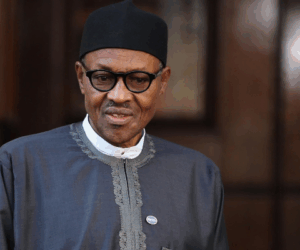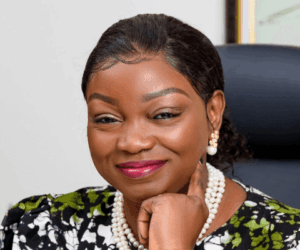Over the past decade, Nigeria’s trust services industry has quietly transformed from a niche segment into a critical pillar of wealth management and corporate finance. Rising financial literacy, stronger regulation, and a growing appetite for structured estate planning have reshaped the sector, creating new opportunities for both individuals and institutions.
“Nigeria’s expanding capital markets and infrastructure projects have created a steady flow of bonds, securitisations, and syndicated loans, all of which require the involvement of a professional trustee.”
In this conversation with BusinessDay’s DAVID OLUJINMI, Lola Rasaq, Managing Director of DLM Trust Company, shares insights on the industry’s growth, the company’s unique approach, and how new products like the Single Asset Trust are redefining how Nigerians think about wealth preservation and fiduciary services.
What led to the establishment of DLM Trust Company in 2017, and how has the journey evolved since then?
DLM Trust Company was born in 2017 from the vision of DLM Capital Group, led by CEO Sonnie Ayere. The idea was clear from the outset: to bridge a significant gap in Nigeria’s emerging trust industry by combining strategic thinking with innovation. The aim was to offer world-class trusteeship services to individuals, corporations, and even government agencies.
From the beginning, the company embraced a tech-forward approach. Its services quickly expanded to cover public and private bond trusteeship, securitisation, estate planning, and private trust solutions such as living trusts, will writing, and education savings plans. By diversifying early, DLM Trust established a strong foothold in multiple sectors of the trust services market.
How would you describe Nigeria’s trust services landscape, and what makes DLM Trust stand out?
The industry has matured rapidly in the last decade, driven by rising financial literacy and a growing awareness of the need for estate planning. More Nigerians are seeking professional trustees to handle complex transactions such as bonds and securitisations. The Securities and Exchange Commission has also stepped up oversight, pushing the sector to meet higher professional standards.
Against this backdrop, DLM Trust has managed to stand out by focusing on innovation and deep corporate expertise. In 2024, it introduced the Single Asset Trust, a first-of-its-kind product in Nigeria designed for asset-specific estate planning. Backed by the capital market experience of DLM Capital Group, the company frequently serves as trustee for high-level corporate finance transactions, from syndicated loans to escrow arrangements. Its strong governance culture, combined with a team of specialists in trust law, finance, and wealth management, has reinforced its reputation for professionalism and reliability.
You serve both corporate and private clients. Which side of the business currently drives the most demand?
At the moment, corporate trust services are in the lead. Nigeria’s expanding capital markets and infrastructure projects have created a steady flow of bonds, securitisations, and syndicated loans, all of which require the involvement of a professional trustee. These corporate transactions tend to be large, complex, and highly regulated, which makes transparency and trusted oversight essential.
While the private trust segment is growing, especially with innovations like the Single Asset Trust, the corporate side continues to dominate because it is so deeply tied to Nigeria’s economic development agenda.
Speaking of the Single Asset Trust, what gaps in the market were you hoping to address with this product?
The Single Asset Trust, launched in 2024, is essentially a streamlined version of the living trust. It was designed for people who want to protect or transfer a specific, high-value asset, perhaps a family home, a business, or a significant investment, without the complexity of covering an entire portfolio.
In Nigeria, estate planning has often been either too broad or too informal. Many families still rely on verbal agreements or handwritten notes, which can lead to disputes or even asset loss. The SAT offers a formal, legally binding structure that is easy to understand and control. It gives the owner the flexibility to set clear rules on how the asset will be used or passed on, whether for general inheritance, educational funding, or other specific family needs.
Another key feature is its digital accessibility. Historically, estate planning here was paper-heavy and opaque. With the SAT, setup and management can be done through DLM Trust’s online platform, with transparent reporting and a more modern, user-friendly process.
Another unique product is the Blind Trust, which has strong implications for ethics and governance. How has the market responded?
The Blind Trust has attracted growing interest, especially among public officials and corporate leaders who want to avoid conflicts of interest. For politicians, it offers a way to hand over asset management to an independent party without having direct knowledge or control, which signals transparency and compliance with ethical regulations.
Corporate executives are also using it to manage potential conflicts that could arise from insider information, particularly in publicly listed or heavily regulated companies. That said, adoption is still gradual. Some people are understandably cautious about relinquishing control over their assets. This is why DLM Trust invests heavily in education, running seminars, workshops, and private consultations to explain the safeguards in place and how the arrangement actually works in practice.
Let’s talk about trends. What are you seeing in estate and wealth planning among younger or first-generation wealth holders?
One of the biggest shifts is the embrace of digital and tech-driven solutions. Younger clients expect to be able to track their investments or estate plans on an app, sign documents electronically, and get real-time updates from their advisors.
There is also a move away from informal, traditional succession plans toward legally documented wills and trusts. Families are becoming more aware of the risks of losing wealth between generations, which has led to more structured succession planning and even financial literacy programmes for younger family members.
Finally, trusts are becoming more widely used, especially where assets need to be managed for minors or where there is a desire to control distribution over time. This has also increased demand for professional advisors who can provide tax-efficient, legally sound estate planning solutions.
Being regulated by the SEC means you operate in a tightly controlled space. How do you ensure compliance, especially with complex deals like securitisations?
Compliance is a core part of our operations. We engage independent verifiers and auditors to monitor both assets and cash flow in transactions. Everything is done in strict alignment with the Investment and Securities Act, SEC regulations, and the terms of the trust deed.
On top of that, we maintain a team of SEC-registered “sponsored individuals”, including our Managing Director and Compliance Officer, who undergo continuous training and certification. It is about ensuring that every person in a decision-making role is both qualified and accountable.
If you could introduce policy reforms to boost the industry, where would you start?
I would start with modernising our legal framework. Nigeria’s trust laws date back to 1893, and while they have served their purpose, they no longer reflect today’s realities. A unified national trust and estate act would go a long way in standardising practices.
We also need legal recognition for cross-border and diaspora trust structures, stronger oversight to protect beneficiaries, and full digitisation of probate and asset registration. These reforms would make the system faster, more transparent, and more accessible to a wider segment of the population.
What challenges do you face in getting more Nigerians to embrace trust services?
Awareness is the biggest hurdle. Many people either do not know what a trust is or think it is something only for the ultra-wealthy. There is also a shortage of highly experienced trust professionals, which can limit the variety and sophistication of services offered in the market.
Finally, Nigeria’s infrastructure for probate and asset registration is still developing. Without centralised digital systems for land titles or probate, the process can be slow and cumbersome, which can discourage people from formalising their estate plans.
Looking ahead, what can clients expect from DLM Trust over the next two to three years?
You will see us doubling down on digital solutions. The Single Asset Trust was only the beginning; we are working on expanding it into multi-asset and specialised variants. We are also developing a secure client portal with e-signature capability, dashboards, and integration with other DLM platforms.
In essence, we are moving towards becoming a technology-enabled fiduciary hub, combining the personalised service of a traditional trustee with the convenience and transparency of a modern fintech platform. Our goal is to make trust services not just more efficient but more accessible and inclusive.









